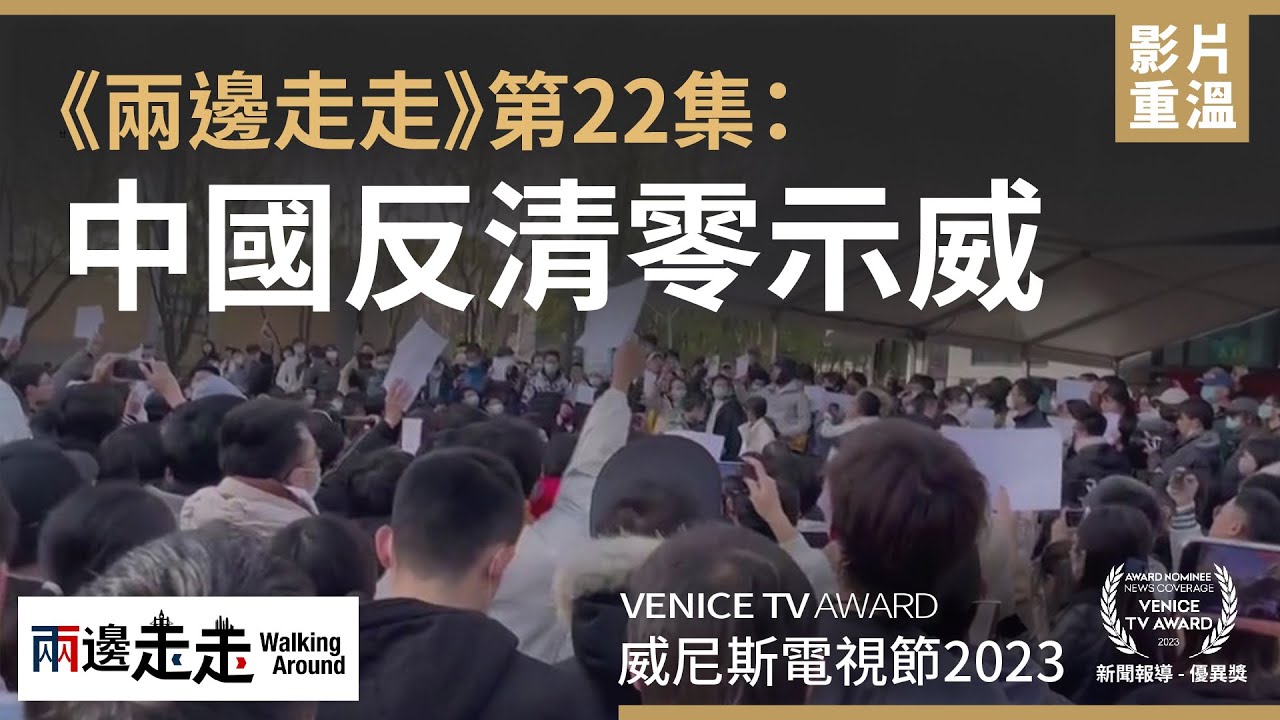Walking Around: Protests against Zero COVID Policy in China
[Venice TV Award 2023 News Coverage Nominee]
In late November and early December 2022, a fire broke out in an isolated housing building in Urumqi, killing ten people who had been heavily quarantined by the authorities. The fire in Xinjiang sparked anger in the hearts of the Chinese people against the official anti-epidemic measures, and people everywhere could no longer tolerate the harsh isolation policies that had been in place for over two years, leading to the largest demonstrations since the 1989 pro-democracy movement. Therefore, ‘Walking Around’ produced a special episode to introduce and analyze this unusual phenomenon.
In this episode, through our remote interviews, the demonstrators explain their intentions of coming forward while the eyewitnesses tell the official abuse of power and suppression. The netizens’ plight in the epidemic is highlighted as well as the society’s resentment against the nucleic acid testing companies that made exorbitant profits from the epidemic.
This episode also examines the differences between this massive demonstration and those of the past 30 years or so: how the demonstrators set the record straight among their peers in the face of accusations of foreign intervention and influence, and how the official initial response was seen rarely mild this time. We also point out the demonstrations in Hong Kong in support of the Chinese one. The reasons behind Hong Kong protesters who experienced the 2019 social movement, especially the youngsters who had been defamed by the mainland Internet, show their solidarity with the demonstrations in China this time.
In an unexpected turn of events, the death of one of China’s most influential former leaders, Jiang Zemin, came at a time of social instability in China. This episode also analyses the reasons why this controversial leader is being evaluated in a relatively friendly manner by the current society.
This episode is the only comprehensive news program to cover the China demonstrations in Cantonese-speaking media, regrettably, at the forefront of China news, this is something that would not happen in Hong Kong before 2020.
